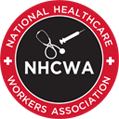
Certified EKG Technicians (CETs) perform electrocardiograms, or EKGs. They are responsible for setting up and operating the machines that monitor and measure the electrical activity of a person’s heart. These tests are often performed during physical examinations, for patients with a history of heart disease, and before and after operations. Aside from performing EKGs, certified EKG technicians can also perform stress tests and prepare patients for ambulatory monitoring. CETs communicate test results to physicians and sometimes transcribe physicians’ interpretations of those results.
Where Does an EKG Technician Work?
CETs can work in hospitals or clinics and are integral members of the medical team. They are often responsible for performing routine cardiac testing. However, they are sometimes needed in emergency medical situations, for example, to test the cardiac response of a patient who has just had a stroke.
Because EKG is a growing field, to pursue a career as an EKG technician it is necessary to attend an EKG training course. Many technical schools and community colleges offer training courses that last between 8 and 16 weeks. EKG technicians can also choose to take advanced training that allows them to perform stress testing and Holter monitoring, in addition to EKGs, in order to increase their annual salary.
The Importance of Certification
NHCWA Certification allows healthcare workers and employers to validate their knowledge and abilities and the mastery of industry-specific skills. Achieving certification helps healthcare organizations demonstrate that their business is run effectively by qualified staff. Meanwhile, recertification reflects a commitment to ongoing learning and improvements. Additionally, organizations that are NHCWA certified can successfully demonstrate to patients, employees and other companies that they use industry-respected best practices.
NHCWA Certification Benefits Patients and Families: NHCWA Certification provides validation that a medical organization and its employees have demonstrated the necessary knowledge and skills to meet the complex requirements of the healthcare industry. This ensures high quality care delivery, which can give patients and families peace of mind.
NHCWA Certification Benefits Healthcare Professionals: In order to become certified, healthcare professionals must validate their industry-specific knowledge and skills. Passing the certification process allows them to position themselves for appropriate recognition, and it can give them a critical sense of confidence and achievement.
NHCWA Certification Benefits Employers: Certification is a vehicle for hospitals to distinguish themselves from competitors. It demonstrates to consumers that the organization attracts only the most skilled and experienced healthcare workers. Achieving NHCWA certification (and meeting the continuing education requirements necessary to maintain it) also contributes to an environment of professionalism and a culture of employee retention. This is especially critical given the severe shortage of qualified healthcare workers.
NHCWA EKG Certification Requirements:
- Graduation from an allied health vocational training program
- One year of work experience in the field
- Military experience/training in the field
- Reciprocity from another certifying agency
